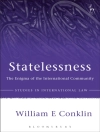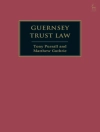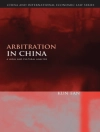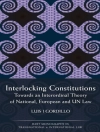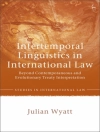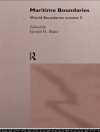This yearbook is a compilation of thematically arranged essays that critically analyse
emerging developments, issues, and perspectives across different branches of law. It
consists of research from scholars around the world with the view that comparative
study would initiate dialogue on law and legal cultures across jurisdictions. The themes
vary from jurisprudence of comparative law and its methodologies to intrinsic details
of specific laws like memory laws. The sites of the enquiries in different chapters are
different legal systems, recent judgements, and aspects of human rights in a comparative
perspective. It comprises seven parts wherein the first part focuses on general themes
of comparative law, the second part discusses private law through a comparative lens,
and the third, fourth and fifth parts examine aspects of public law with special focus
on constitutional law, human rights and economic laws. The sixth part engages with
criminal law and the last part of the book covers recent developments in the field of
comparative law. This book intends to trigger a discussion on issues of comparative
law from the vantage point of Global South, not only focusing on the Global North.
It examines legal systems of countries from far-east and sub-continent and presents
insights on their working. It encourages readers to gain a nuanced understanding of
the working of law, legal systems and legal cultures, adding to existing deliberations
on the constituents of an ideal system of law.
Innehållsförteckning
Part I: Comparative Law: General Themes .- Comparative Law and Globalization in Asian Perspectives: Two Proposals of Methodological Frameworks (Yasuda Nobuyuki).- On the Origin of Legal Diversity by Means of Comparative Law, or the Role of Legal Education in the Solution of Legal Conflicts (Rostam J. Neuwirth).- Part II Private Law.- Contribution by Prof. Anil Kumar Rai.- Part III Public Law.- Section A-Constitutional Law.- A Comparative and Jurisprudential Analysis of the “Umbrella Movement” – Is It a Constitutional Moment? (LIN Feng).- Varying Approaches to Religion under the Electoral Law (Virendra Kumar).- South Asian Constitutionalism in Comparative Perspective: the Indian “prototype” and some recent borrowings in the 2015 Nepalese Constitution (Domenico Amirante and Pasquale Viola).- Commonalities in the Law and Development Movement and the Indian Public Interest Litigation: Reconsidering the Roots of Their Current Difficulties (Hajime Sato).- Justifying Privacy: The Indian Supreme Court’s Comparative Analysis (Pritam Baruah and Zaid Deva).- Judicial Interpretation in China (Liu Jianlong).- Section B-Human Rights.- Rethinking ‘Memory Laws’ from a Comparative Perspective (Kanika Gauba).- Settlement of Indigenous Land Disputes by the CHT Land Dispute Resolution Commission of Bangladesh: Challenges and Solutions (Dr. Mohammad Moin Uddin).- The Protection of People with Disabilities in China: Current Status and Challenges (Han Dayuan).- Section C: Economic Regulations.- Legitimate Expectations in Investment Arbitration: A Comparative Perspective (Aniruddha Rajput and Sarthak Malhotra).- A Century Of Evolution Of The Mexican Central Bank: The Road Towards Its Constitutional Autonomy (Jorge Vargas Morgado).- Part IV: Criminal Law.- Giving Precedence to the Indian Penal Code (Stanley Yeo).- The Immutability of the Marital Rape Exemption Clause in Indian Rape Law (B.B. Pande).- Part V: Recent Developments.- Review of: Transformative Constitutionalism in Latin America: The Emergence of a New Ius Commune (Akshaya Chandani).
Om författaren
Mahendra Pal Singh is Professor Emeritus, University of Delhi and currently Chair Professor at Centre for Comparative Law, National Law University (NLU) Delhi. He has also served as the Chancellor of the Central University of Haryana, Chairperson of Delhi Judicial Academy, and Vice Chancellor of the National University of Juridical Sciences (NUJS), Kolkata. He was a fellow and visiting professor at several institutions and universities abroad and in India. His publications include numerous articles in national and international legal journals and several books. He is the founding editor of the
NUJS Law Review and
The Indian Yearbook of Comparative Law and has collaborated on national and international research projects in the area of comparative public law. He is currently directing a project on “Exploring the Nature of the Indian Legal System’.
Niraj Kumar is currently working as an assistant professor at National Law University Delhi, where he is also the Project Co-director of “Exploring the Nature of the Indian Legal System” at the Centre for Comparative Law. He taught at the Faculty of Law, University of Delhi previously. He was an Expert member of drafting Committee of the EPF Act and the Central Water Commission for approval of projects. He has published several articles in journals and has presented papers on environmental law, constitutional law and comparative public law. His most recent publication is a book chapter in
Biodiversity, Law, Policy and Governance, Edited by Tandon et al published by Routledge in 2017. His areas of interest are Administrative Law, Constitutional Law, Environmental Law, Interpretation of Statutes, Jurisprudence and Comparative Law.


